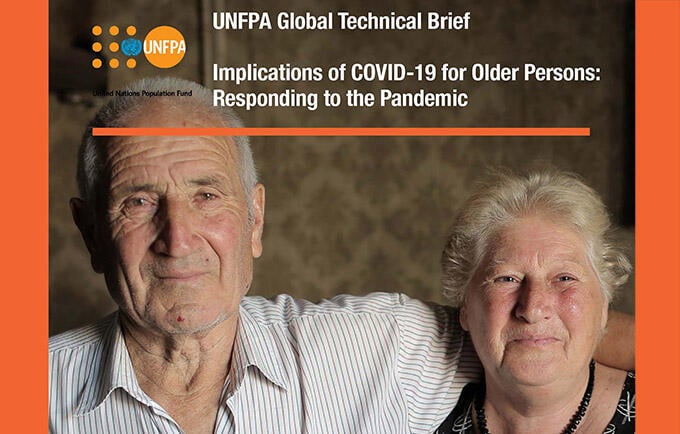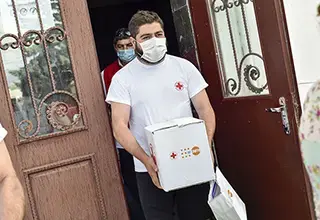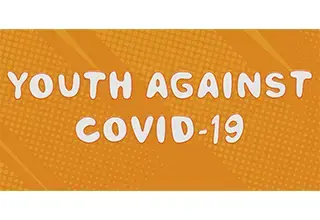ISTANBUL, Turkey – The COVID-19 pandemic is affecting people and communities all around the world, but the disease poses heightened risks for older persons, a fact evident in all national data.
With the world’s highest share of people in this demographic group, Europe faces a particularly acute challenge in protecting the health of older persons and their caregivers, while ensuring that their voices, opinions and concerns are heard.
According to the Imperial College London COVID-19 Response Team, symptomatic individuals in their seventies are 20 times more likely to require hospitalization due to the novel coronavirus than those in their twenties. Older persons also confront multiple barriers in accessing quality health care, and are more vulnerable to the effects of social-isolation measures being enacted globally to try and slow the spread of the virus.
In response to these specific vulnerabilities, a new UNFPA Global Technical Brief, Implications of COVID-19 for Older Persons: Responding to the Pandemic, has been developed by the UNFPA Global Ageing Network to help guide the agency’s responses to the COVID-19 crisis and ensure older people’s health and rights are protected.
Notable steps to that end have already been taken by UNFPA Country Offices in Eastern Europe and the Caucasus in collaboration with their partners to support these countries’ ageing populations, including:
- Providing personal protective equipment to social workers caring for older persons and to people distributing pensions of older persons to their homes in Armenia.
- Conducting online webinars and peer-to-peer discussions for older persons via social media in Azerbaijan.
- Ensuring information on appropriate protection measures reaches more than 180,000 older persons and their families and caregivers in Belarus.
- Distributing hygiene kits and guidance information for older people through a network of 60+ Clubs in Georgia.
- Establishing a real-time monitoring data dashboard to track COVID-19 cases and provide disaggregated data on age and sex in the Republic of Moldova, and mobilizing young Moldovans to support older people.
- Delivering hygiene kits for older persons to health facilities in the Republic of North Macedonia.
- Providing hygiene supplies and information to approximately 3,000 older persons from particularly vulnerable populations in Serbia.
In his Policy Brief on the Impact of Covid-19 on Older Persons, issued 1 May, UN Secretary-General António Guterres stressed the human-rights imperative of addressing the specific needs of older persons within the global pandemic. He called upon governments, civil society and development partners to focus their efforts to protect older persons, while recognizing their incredible resilience, positivity and contributions, and the multiple roles they have in society, including as caregivers, volunteers and community leaders.
UNFPA Country Offices across the Eastern Europe and Central Asia region are working to support the efforts of national Ministries of Health and Social Protection to ensure that the care and support for older persons and their caregivers are prioritized. This includes generating age-disaggregated data and addressing age-based discrimination. They are also collaborating with the World Health Organization and other UN partners to develop COVID-19 response and recovery strategies that focus on the protection of older persons, and support the continuity of essential services.
Responding to the rights and needs of older persons, with a focus on human rights, health and protection, is fully in line with one of the accelerators of the UNFPA COVID-19 Global Response Plan: to leave no one behind. UNFPA also supports civil society to advocate for older persons’ participation in the policy arena, and for their voices to be heard in preparedness and response to a crisis in which they are the most affected.




